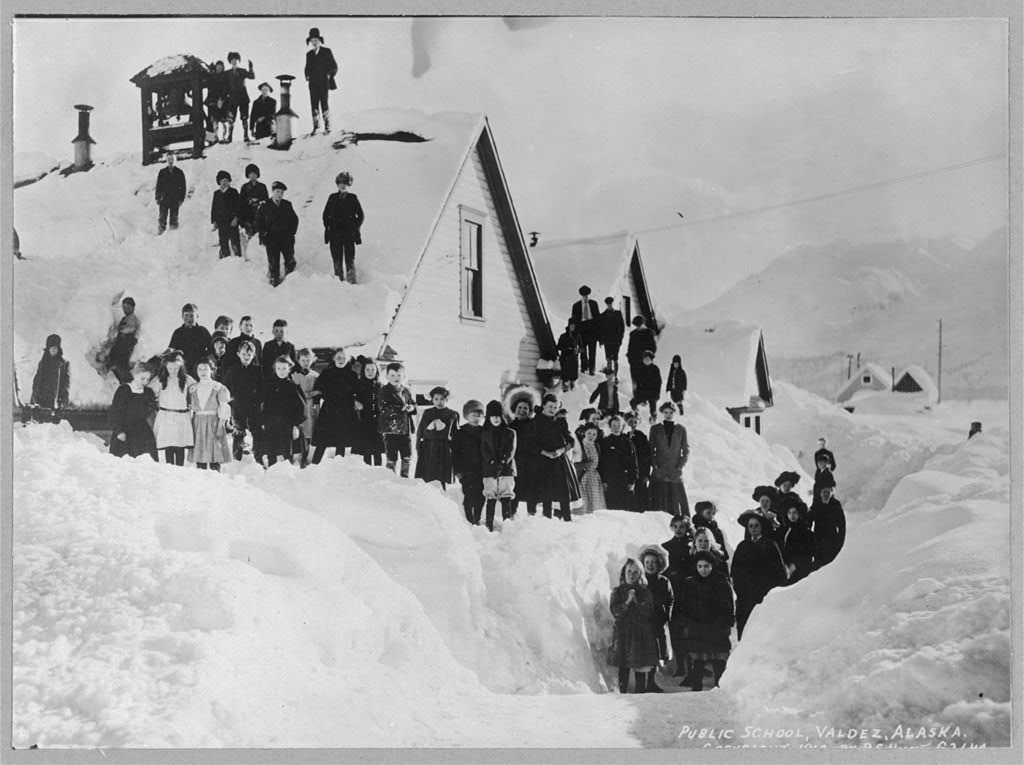
Alaska Statewide Mentor Project is Reaching Rural Teachers
Abigail Swisher, Rural Impact Fellow at FAS, served in the Office of Elementary and Secondary Education, with a focus on STEM education. This post was originally published at HomeRoom, the official blog of the U.S. Department of Education.
Spanning 37,000 miles across Alaska, the Northwest Arctic Borough School District has struggled to hire and retain enough new teachers. The eleven villages within the district – many of them above the Arctic Circle – are sparsely populated and remote. The winters are long, and without easy connection to roads, teachers new to the area often feel the isolation of remote village life.Alaska’s Northwest Arctic Borough
Early-career and out-of-state teachers tend to be most heavily concentrated in Alaska’s rural schools, where they face a steep curve in adjusting to a new way of life while learning the ropes of teaching. As Northwest Arctic Borough Superintendent Terri Walker explains, “Our new teachers really have to learn everything: a new culture, sometimes a new language, new teaching skills, a new curriculum, customs and traditions of our kids, and the culture of our schools,”
But Northwest Arctic has found one approach to help their new teachers thrive in the classroom: A mentoring program that pairs new teachers with experienced educators from across Alaska.
The Alaska Statewide Mentor Project (ASMP) connects new teachers often isolated by physical distance with experienced mentor teachers who help them learn the skills to fit their unique cultural context. Mentors and mentees connect virtually each week and in-person several times per year, which usually requires long journeys involving travel by bush plane, boat, dog sled and/or snowmobile.
Mentors help new teachers develop culturally responsive practice, building on Alaska’s statewide standards for culturally responsive teaching. Roughly seventy percent of new teachers in Alaska’s rural and isolated schools come from out of state, so the program focuses on helping teachers learn their students’ cultural context and work to integrate into their community.
Cultural knowledge is crucial for new teachers in Northwest Arctic Borough, whose student population is ninety percent Inupiaq. Superintendent Walker says that the district’s work is deeply centered in preservation of the unique heritage and values of Inupiaq culture; their motto is “Atautchikun Iñuuniałiptigun (Through Our Way of Life Together as One).”
In the 2023-24 school year, ASMP served roughly 140 new teachers across the state. Many schools share the cost of participation for their new teachers with ASMP; in previous years, Northwest Arctic Borough has used federal dollars through the Rural Education Achievement Program (REAP) to fund teachers’ participation. “It’s a very popular program with our new teachers, and one we try to continue even as our district is operating at a ten-million-dollar deficit,” said Superintendent Walker. “We continue to work to support the program because we believe in it.”
And the program is getting results: rigorous evaluation (funded by an ED Education Innovation Research grant) shows that new teachers who participate in the program make larger student learning gains in reading and math, and stay in the classroom longer than new teachers without a mentor.
The Alaska Statewide Mentor Project’s results are heartening against a larger backdrop of challenges in attracting and retaining new teachers in rural and geographically isolated schools across the United States and its territories. With an additional expansion grant from ED’s Education Innovation and Research (EIR) program, the mentoring program is broadening its reach to teachers in the state of Montana, and to expand the existing program within Alaska to all teachers who are new to the state of Alaska, regardless of their years of experience.
While rural schools are used to being scrappy and doing more with less, without state and federal support, districts will be hard-pressed to close teacher workforce gaps on their own.
Without trusted mechanisms to ensure privacy while enabling secure data access, essential R&D stalls, educational innovation stalls, and U.S. global competitiveness suffers.
tudents in the 21st century need strong critical thinking skills like reasoning, questioning, and problem-solving, before they can meaningfully engage with more advanced domains like digital, data, or AI literacy.
We need to overhaul the standardized testing and score reporting system to be more accessible to all of the end users of standardized tests: educators, students, and their families.